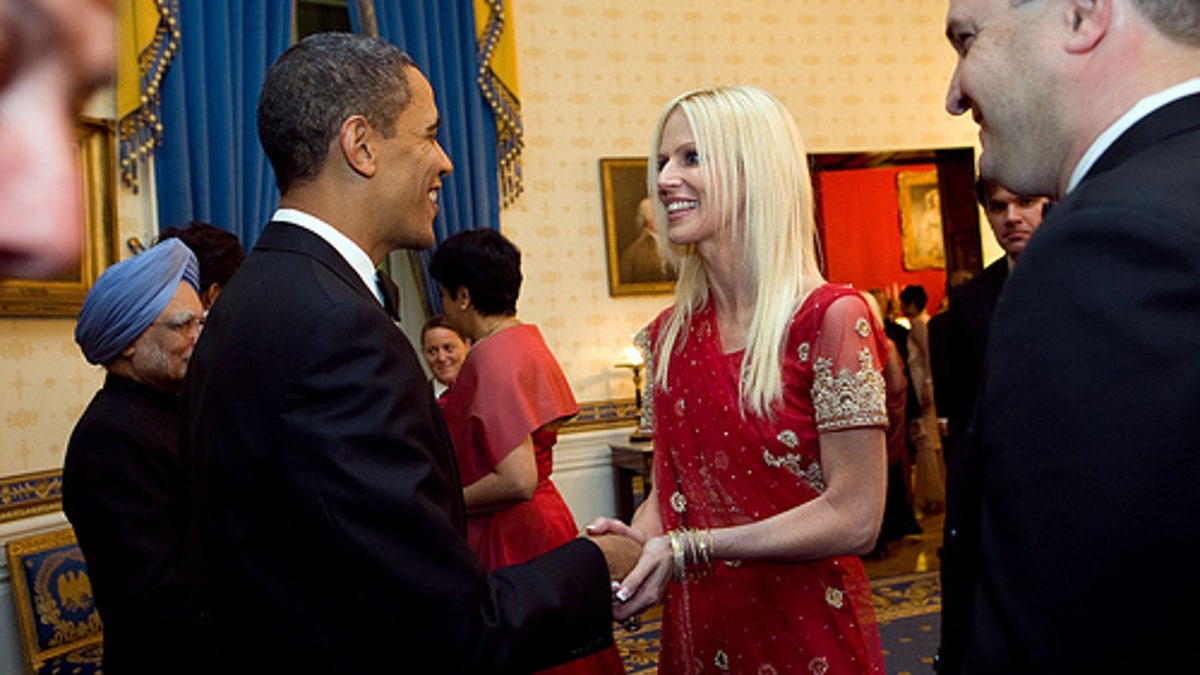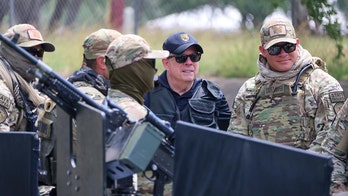
Nov. 24, 2009: President Barack Obama greets Michaele and Tareq Salahi during a receiving line in the Blue Room of the White House before the State Dinner with Prime Minister Manmohan Singh of India. (White House)
Tareq and Michaele Salahi may be the most famous party crashers after sneaking into President Obama's first state dinner last month, but they're by no means the first to elude the Secret Service and breach White House security.
A report compiled by the Secret Service reveals security surrounding the president has been breached at least 91 times since 1980, The Washington Post reported on Monday.
A summary of the secret 2003 report, along with descriptions of more recent breaches by federal homeland security officials, details scores of breaches, including a family who was mistakenly allowed onto White House grounds in a minivan, a woman allowed in despite already having falsely claimed a "special relationship" with former president Bill Clinton and a celebrity hunter who joined Harrison Ford's entourage to get near Clinton.
The document, which is the most complete accounting of recent Secret Service security breakdowns, says the incidents expose significant gaps that could be exploited by would-be assassins and erode "one of the best tools for deterring future attempts."
A Secret Service official confirmed the authenticity of the unclassified document to the newspaper, adding that it had been used to train agents and officers in an effort to improve agency operations.
The list of perimeter breaches indicates that intruders have reached the president or another person under Secret Service protection eight times since 1980, including the Salahis, the Post reported. Four of the incidents involved the same man.
The review was commissioned in 2001 by then Secret Service director Brian Stafford after the service was humiliated for a third time by the most notorious presidential gate-crasher, Richard C. Weaver, who evaded inauguration security to shake George W. Bush's hand.
Weaver, a California minister, had previously infiltrated a 1991 prayer breakfast attended by then-President George H.W. Bush, and Clinton's 1997 inaugural luncheon.
"I believe God makes me invisible to the security, undetectable," said Weaver, whose methods included manipulating others to obtain tickets, telling guards he was lost or looking for a bathroom, and generally "appearing as [if] you are supposed to be there," the Secret Service report said.




